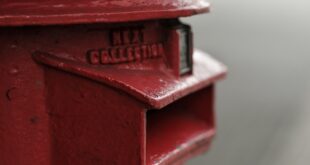Good morning,
These are the top stories:
Meng Wanzhou’s extradition case gets under way today
(Jimmy Jeong/The Globe and Mail)
Jimmy Jeong/The Globe and Mail
It’s a case that upended Canada’s relations with China and led to what critics called hostage diplomacy through the jailing of two Canadians. A little more than a year after her arrest at Vancouver’s airport, Huawei’s chief financial officer will head to B.C. Supreme Court today for the start of extradition proceedings.
China’s foreign ministry on Monday called on Canadian authorities to immediately set free Ms. Meng. The case could take years to play out, and the stakes are high – both for Meng and for the Trudeau government. Here’s a look at what to expect:
First steps: Meng’s lawyers will argue this week that the fraud charges she faces in the United States would not be a crime here because the case is linked to alleged violations of U.S. sanctions against Iran – the type of sanctions Canada dropped in 2016. If the Attorney-General’s department successfully defends against this, the next hearings will be in June.
Meng’s legal team: Despite Huawei’s position as the second-largest smartphone maker in the world, lead lawyer Richard Peck doesn’t use a cellphone. The 71-year-old is widely seen as the dean of British Columbia’s criminal-defence bar, Sean Fine writes. Expect a “low-key but very effective” style rooted in facts and reason, one lawyer said.
The stakes: The case is “definitely a defining moment in the bilateral relationship” with China, says Lynette Ong, a professor at the University of Toronto. Attorney-General David Lametti could opt to intervene to release Meng, but critics say that would send a message that the rule of law in Canada is no different from China’s.
Our editorial board’s view: “Washington had every reason to expect that Canada would honour an extradition request. But Ottawa had every reason to expect the U.S. to stand up against an attack on an ally, and on the American-led international order. Washington’s abdication has left Canada high and dry.”
This is the daily Morning Update newsletter. If you’re reading this on the web, or it was forwarded to you from someone else, you can sign up for Morning Update and more than 20 more Globe newsletters on our newsletter signup page.
Canada is grappling with the challenge of drawing psychiatrists to small towns
Half of Canadians have too few local psychiatrists, a Globe analysis has found, with 2.3 million people living in areas with no permanent psychiatrists. And it’s a problem that’s expected to worsen as many of them enter retirement age without replacements ready to step in.
The problem is particularly acute in rural areas. Some groups are urging increased pay for those who work in remote areas, as well as encouraging more trainees to complete their residencies outside of major cities. If those methods don’t work, video consultations could be an alternative solution.
Canada continues to press Iran to turn over the black boxes from Flight 752
Foreign Affairs Minister François-Philippe Champagne said Canada expects Iran “to proceed with transparency and we demand from Iran that the black boxes be sent to Kyiv or Paris.”
Champagne said he was aware of reports indicating that Tehran wasn’t fully collaborating with the international investigation, news that prompted him to phone his Iranian counterpart to reiterate demands on the black boxes.
Canadian investigators have left Iran for Ukraine, where they’ll continue their work.
Tehran on Monday said Canada’s dual nationals are considered to be Iranian. “We have informed Canada that Tehran considers dual nationals who were killed in the plane crash as Iranian citizens … Iran is mourning their deaths,” Foreign Ministry spokesman Abbas Mousavi told a televised weekly news conference.
On Friday, Prime Minister Justin Trudeau announced that Ottawa would offer short-term family support of $25,000 for each Canadian citizen or permanent resident who lost their lives in the tragedy.
‘It brings me great sadness’: Prince Harry has addressed the royal split
Harry said “many years of challenges” left he and his wife, Meghan, with no other choice but to step back from royal duties. Addressing the break publicly for the first time, Harry insisted that the pair were not “walking away” from Britain – “my home and a place that I love.”
Harry added: “I hope that helps you understand what it had come to, that I would step my family back from all I have ever known, to take a step forward into what I hope can be a more peaceful life.”
His remarks followed the Queen’s announcement on Saturday that Harry and Meghan would step away from royal duties as of this spring, forgo all public money and start paying rent on the use of their home near Windsor Castle.
Got a news tip that you’d like us to look into? E-mail us at tips@globeandmail.com Need to share documents securely? Reach out via SecureDrop
ALSO ON OUR RADAR
Newfoundland’s snow cleanup: Canadian troops have been deployed to help the province clean the streets after a blizzard dumped record amounts of snow.
A snowboarder takes advantage of prime conditions in St. John’s on Sunday. (Andrew Vaughan/The Canadian Press)
The Canadian Press
Rotating strikes at Ontario schools: Elementary teachers will launch rotating strikes today, while high-school educators will continue with their rotating job action tomorrow. Go here to read about the key issues in the labour standoff with the Ford government.
Morneau readies changes to fiscal-stabilization program: The Finance Minister said he expects to announce reforms to the program that is designed to help provinces that face sudden decreases in revenues. Alberta has been pressing for a $2.4-billion payment to make up for lost oil and gas revenues.
China coronavirus spreads: The Chinese government has confirmed 139 new cases of the pneumonia outbreak, including three deaths, as the virus spreads to more cities. This disease belongs to the same family of coronaviruses that caused the SARS outbreak in 2002-03.
B.C. artist Gordon Smith dies: The beloved and influential painter died at the age of 100. The works of Smith, an Order of Canada recipient, are in museum collections worldwide. Besides painting, he was a tireless advocate for art education.
MORNING MARKETS
Feel good factor keeps world stocks near record highs, oil jumps: World stocks held near record highs on Monday as generally better data and earnings bolstered sentiment, while oil prices hit their highest in over a week after two large crude production bases in Libya began shutting down following a blockade. Around 6 a.m. ET, Britain’s FTSE 100 slipped 0.39 per cent. Germany’s DAX lost 0.04 per cent. In Asia, Japan’s Nikkei closed up 0.18 per cent. The Shanghai Composite Index rose 0.66 per cent. Hong Kong’s Hang Seng fell 0.90 per cent. U.S. markets are closed Monday for the Martin Luther King Jr. holiday. The Canadian dollar was trading at 76.51 US cents.
Looking for investing ideas? Check out The Globe’s weekly digest of the latest insights and analysis from the pros, stock tips, portfolio strategies and what investors need to know for the week ahead. This week’s edition includes a look at Enbridge’s turnaround, top analysts’ stock picks and dividend hikes on the horizon.
TODAY’S EDITORIAL CARTOON
(David Parkins/The Globe and Mail)
David Parkins/The Globe and Mail
LIVING BETTER
Not so fast on the fasting trend
The intermittent fasting trend has many people skipping breakfast in search of better health. While the research around eating (or skipping) breakfast is somewhat equivocal, there are good reasons to include this meal in your diet, Leslie Beck writes.
MOMENT IN TIME
For more than 100 years, photographers have preserved an extraordinary collection of 20th-century news photography for The Globe and Mail. Every Monday, The Globe features one of these images. This month, we’re marking the 100th anniversary of the start of Prohibition in the United States.
(Spaarnestad Photo/Bridgeman Images)
Spaarnestad Photo / Bridgeman Images
Prohibition was in many ways a feminist cause. Male legislators may have drafted and ratified the 18th Amendment – and the Anti-Saloon League, founded by Howard Hyde Russell, is usually credited with leading the final push – but it was decades of activism by groups such as the Woman’s Christian Temperance Union that finally convinced the United States to ban the sale, production and transportation of alcohol. The WCTU saw it as a way to end the abuse of alcoholic husbands. But then there were other women – such as the two in this photo from 1932, in a speakeasy on 24th Street in New York – who had been drinking quietly at home and social gatherings. Prohibition allowed women to drink “publicly” in the illegal but welcoming establishments that replaced men-only saloons, changing the way Americans socialized for decades to come. – Massimo Commanducci
If you’d like to receive this newsletter by e-mail every weekday morning, go here to sign up. If you have any feedback, send us a note.
Source link



